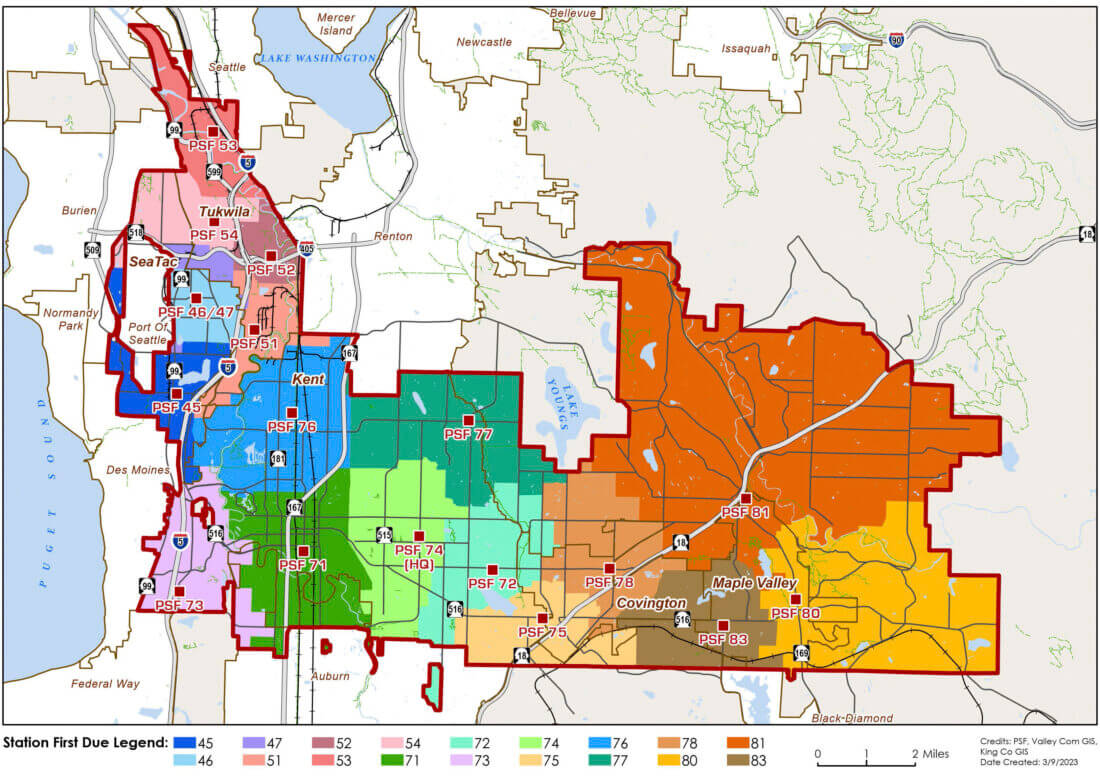Renton RFA Will Share “FD CARES” Program with Puget Sound RFA
April 17, 2024
The city of Renton’s Regional Fire Authority has agreed to share its CARES (Community Advocates for Referral and Education Services) program with the Puget Sound Regional Fire Authority, which provides both emergency and non-emergency services in a 120-square mile area that includes more than 260,000 residents, five communities (Kent, Covington, Maple Valley, SeaTac, and Tukwila), as well as unincorporated areas of King County Fire District #37 and King County Fire District #43.
The Washington State Legislature authorized the creation of Regional Fire Authorities (or RFAs) more than a decade ago. The purpose was to provide additional funding for fire services. Instead of the fire services being funded by cities from their general fund, a separate entity could be created which would be empowered to collect both additional property taxes dedicated to fire services, plus a voter-approved fire fee. Renton created its a single-city RFA, while Kent took the lead in forming what is now the Puget Sound RFA (which includes Covington, SeaTac, Tukwila, and portions of unincorporated King County).
The CARES program was created following the death of George Floyd to supplement the capabilities of police and fire departments responding to situations where significant assistance was needed in the areas of mental health, addiction, and referrals to human services. It is an alternative response model for first-responder units that contain a registered nurse, social worker, or other specialist who work both proactively and reactively to address the individual needs of community members who are chronically homeless, experiencing a mental health crisis, or identified as having unique healthcare needs. The goal is to provide individualized care and resource referrals to community members, as well as reduce the response burden and backlog experienced by traditional first responders.
The agreement between Renton and PSRFA includes aid in deescalating encounters with non-violent community members, connecting community members to appropriate resources, and reducing encounters by mitigating future crises. Additionally, the agreement requires documentation of both mental health and non-mental health calls for service in conjunction with dispatch (in this case Valley Communications), data analytics to measure outcomes and improve services, and training and resources on mental health for police.

